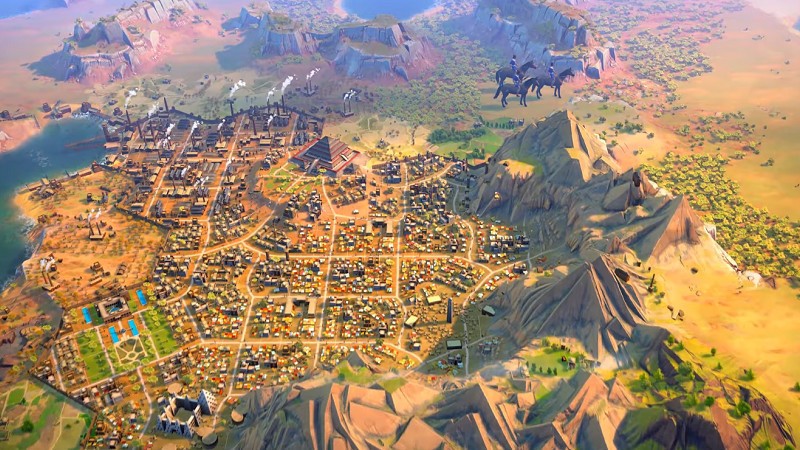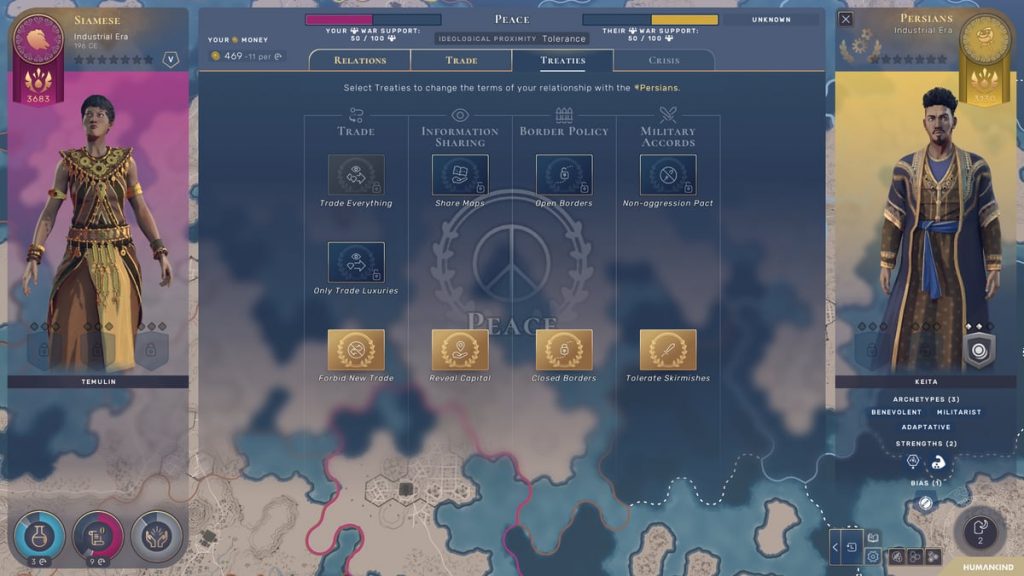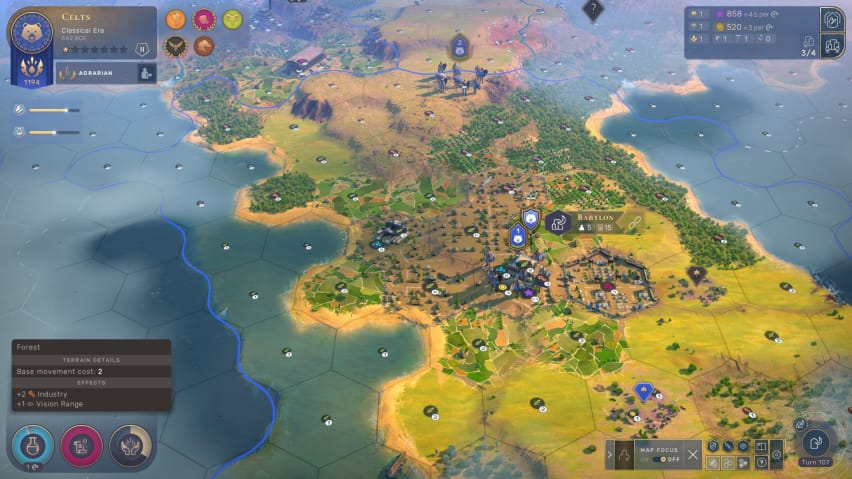-
Graphics
-
Audio
-
Gameplay
-
Story
Summary
Pros Introduction of cultures brings flexibiity to strategy Dizzying array of mechanics Cons Very complex to get to grips with
Few games get the grey matter whirring like a strategy title, and this latest effort is certainly up there – read our Humankind review to find out just why….
French studio Amplitude, renowned for their ‘Endless’ series of turn-based titles has taken their hand to mapping our path through history with Humankind.
Leading a civilisation through seven eras from (literally) the Stone Age to modern times and beyond, everything from religion to warfare and municipal planning is under your watchful gaze.
Whilst there is steady progress to be made in developing conurbations, setting up defences and expanding your empire, the seismic changes come in the form of being able to swing wildly into another culture as it develops in your image.

Each culture introduces a vast array of new talents, attributes and unique skills which unlock further innovations to take you into the next era.
It was a pleasant surprise to see my people in the Ghanaians excelling as merchants in the Medieval era, picking up buffs that enable significant riches to be reaped from canny planning along trade routes.
Dedication of time and effort is a necessity to wrap your head around the vast array of variables and at times daunting granularity with which you can create your empire.
The fluidity with which cultures can be adopted through each era is also available to your AI adversaries, all with unique playstyles and behaviours which keep you on your toes on your path to greatness.
This is an effort where time spent is definitely rewarded, whether diligent planning sees your fortunes develop or a well-executed military strategy working to perfection – it’s these moments that make Humankind – and many other competing titles in this genre – so worthwhile to invest in.
That element of competition is unavoidable, however, with Humankind going up against the behemoth that is the Civilization series – now some three decades and six mainline titles deep.

The variety in terms of the eras and the doggedly single-minded goal of attaining immortality through fame does genuinely set this title apart.
With a Musk-esque determination to colonise Mars being one of the overarching win conditions, all other achievements funnel up to this single aim of attaining fame.
Diplomacy quickly becomes the currency, as you can either battle or barter with neighbouring factions, often triggering story-driven moments that provide some colour to proceedings.
With both gold and influence playing their role in how effectively you can navigate situations, clever critical thinking at these junctures can dramatically steer the course of evolution at every turn.
Sumptuous visuals only make this journey more exciting, with beautiful vistas to navigate around from the traditional ‘god game’ isometric perspective, but zooming in highlights the life and vibrancy lent to your evolving world.

Gameplay is methodical and considered, but the AI rivals tend to keep things at arm’s length, and Humankind’s pace isn’t always for those used to the decisive ‘best worst outcome’ decision making and constant firefighting from more rapid titles in the genre.
Not a bad thing by any means, but the relatively system-based and detail-oriented nature – not to mention the sheer flexibility – of Humankind does indeed set it apart from contemporaries in some new and interesting ways.
Whilst it may not quite topple the king of the genre quite yet, there’s certainly a place amongst the Parthenon for a strategy game that truly holds a mirror to your planning and options, rather than taking you on a guided path from the outset.
Much like its real-world counterpart, the fun in Humankind comes from the sheer wealth of variety you encounter.
Provided you’re not initially overwhelmed, there is hundreds of hours of content to enjoy and an infinite number of procedurally generated worlds to conquer.
Review copy supplied by publisher.
